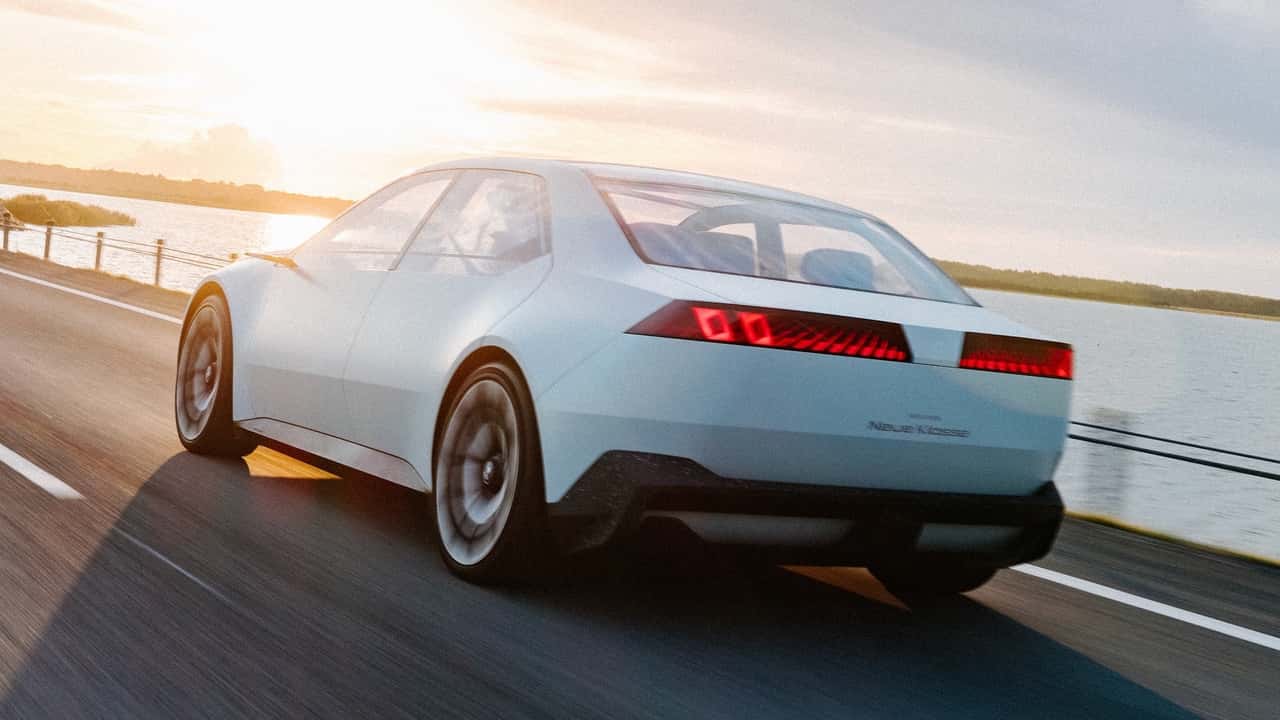BMW plans to release six all-new electric vehicles by the end of the decade, all of which will be based on its Neue Klasse architecture. The first vehicle to debut will be an electric crossover called the iX3, followed by a sedan. The iX3 is expected to be similar in size to the current combustion-powered X3 sold in the United States. The new generation of the iX3 will likely replace the current model. Production of the iX3 will take place at BMW’s new European factory in Hungary, with an extended-wheelbase version to be built in China.
Following the iX3, BMW will introduce an all-electric sedan codenamed NA0, which will be similar in size to the 3 Series. The electric sedan is set to go into production in 2026 at BMW’s Munich plant in Germany. The new models will have badges like i320 or i330 to indicate their power output, while the gasoline and diesel-powered 3 Series models will drop the “i” and “d” suffixes.
In addition to the crossover and sedan, BMW has plans for a coupe-like sedan called the iX4, which is expected to debut in 2026. There are also talks of a station wagon version. However, the naming scheme for these models is not in line with the rest of the lineup.
There are rumors of a smaller electric hatchback to replace the iX1 compact crossover, as well as an all-electric M3 sports sedan with up to 1,000 horsepower. The M3 is said to feature a quad-motor setup similar to the one found in a modified i4 M50 prototype.
The Neue Klasse architecture sets itself apart from BMW’s current technology by being specifically designed for electric vehicles. It integrates batteries into the car’s structure rather than placing them in a separate plate on the floor. The platform also uses new cylindrical battery cells developed by BMW, which are more energy-dense and offer up to 30% more energy in the same footprint as the current prismatic cells. The modular battery packs on the Neue Klasse platform are rated at around 800 volts, enabling faster charging speeds of up to 270 kilowatts.
BMW already offers several electric vehicles on the market, including the i4, i5, and i7 sedans, as well as the iX SUV. The new generation of electric vehicles based on the Neue Klasse architecture aims to provide more range, power, and faster charging speeds while potentially reducing manufacturing costs.
BMW to Introduce X3-Sized Crossover and 3 Series-Sized Sedan as First Neue Klasse EVs
Munich, Germany – BMW, the renowned German automaker, has recently announced its plans to venture into the electric vehicle (EV) market with the introduction of two new models: an X3-sized crossover and a 3 Series-sized sedan. These forthcoming models will serve as the first representatives of BMW’s Neue Klasse series, a revolutionary line of electric vehicles that promises cutting-edge technology, striking design, and unparalleled performance.
The decision to enter the EV market is a bold move by BMW, as the company is trusted and respected worldwide for its high-performance combustion engine vehicles. However, in today’s rapidly evolving automotive landscape, it has become apparent that embracing electric mobility is not only a way forward but also imperative to meet sustainability goals and customer demands.
The new X3-sized crossover, expected to be called the iX3, will be positioned as a versatile and compact electric alternative to the popular X3 SUV. Drawing inspiration from the iX3 concept showcased in 2018, this EV is set to redefine the electric crossover segment with its dynamic style, exceptional range, and state-of-the-art technology. Equipped with BMW’s fifth-generation eDrive system, the iX3 is anticipated to offer an impressive range of over 400 kilometers (250 miles) on a single charge. Additionally, it will feature rapid charging capabilities, ensuring that the vehicle can be ready to hit the road again in minimal time.
Accompanying the iX3 in BMW’s Neue Klasse lineup will be the 3 Series-sized sedan, reportedly named the i4. This model aims to be a groundbreaking combination of sportiness and sustainability, offering drivers an electric driving experience without sacrificing the renowned driving dynamics that have made the 3 Series a beloved choice. The i4 is anticipated to feature a range similar to that of the iX3, thanks to advanced battery technology and efficient electric motors. Moreover, it is expected to offer swift acceleration and agile handling, enabling drivers to enjoy the exhilaration of driving a BMW in a sustainable manner.
As part of the Neue Klasse series, both the iX3 and i4 will utilize BMW’s advanced EV architecture, which allows for flexible design possibilities, integration of sophisticated driver assistance systems, and remarkable performance. Moreover, these vehicles will adhere to BMW’s unwavering commitment to sustainability, utilizing sustainable materials and production processes.
Frank Weber, Member of the Board of Management of BMW AG, responsible for Development, highlights the significance of these new models, stating, “With our Neue Klasse, we are not just transferring our vehicles to electric powertrains but also creating a completely new experience centered around sustainability, digitalization, and customer-centricity. The iX3 and i4 represent the BMW of the future – innovative, efficient, and exhilarating.”
The unveiling of the iX3 and i4 marks the beginning of a new chapter for BMW, as the company endeavors to shape the future of electric mobility while retaining its engineering prowess and luxury appeal. BMW aims to demonstrate its commitment to sustainability and innovation, ensuring that customers are able to embrace electric driving without compromising on the exceptional driving experience that the brand is renowned for.
Both the iX3 and i4 are set to go into production in 2021, introducing the world to BMW’s Neue Klasse series and setting a new benchmark for electric vehicles in terms of technology, design, and performance. BMW enthusiasts and EV enthusiasts alike eagerly await the arrival of these game-changing models, which undoubtedly represent a significant stride towards a greener and more sustainable future.

